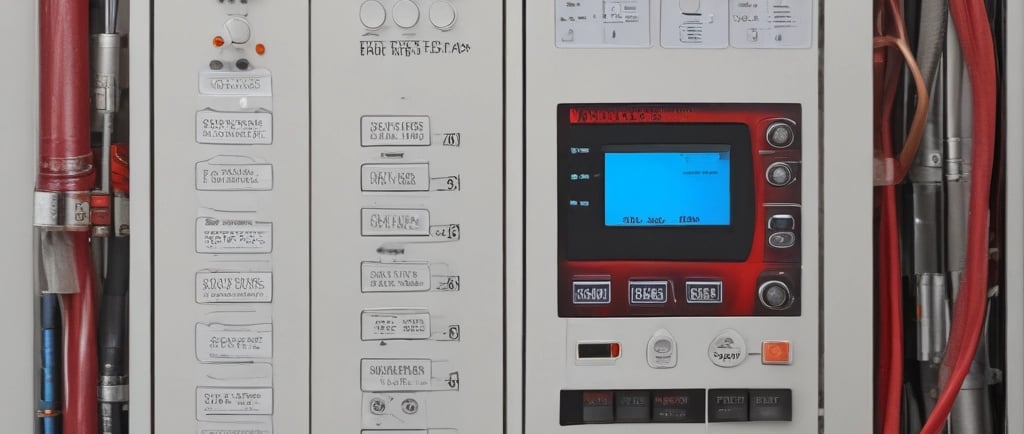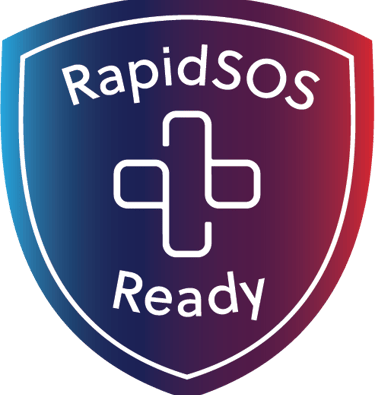ETL Certification: Why It Matters for Life Safety and Security Systems
When it comes to life safety and security, compliance isn’t optional — it’s what protects people and property. Learn why ETL certification matters just as much as the technology itself, and how Omni Data ensures every system we deploy meets the highest national standards for safety, reliability, and performance.
COMPLIANCE
Omni Data Compliance Team
10/15/20253 min read


When it comes to protecting people and property, there’s no margin for error. In the world of life safety and security technology, trust is built on compliance—and compliance begins with certification. Yet many building owners, contractors, and even technology managers don’t fully understand what it means when a product carries an ETL Listed mark, or why it matters as much as the manufacturer behind the name.
At Omni Data, we believe that every system we install should perform when it matters most. That’s why we choose products and partners that meet the highest standards of quality and safety. ETL certification plays a key role in that commitment.
What Is ETL Certification?
ETL stands for Electrical Testing Laboratories, a mark of safety and performance first established by Thomas Edison in 1896. Today, ETL is managed by Intertek, one of the largest global testing, inspection, and certification organizations. When a product is “ETL Listed,” it means that it has been independently tested and verified to comply with nationally recognized safety standards—such as those developed by UL (Underwriters Laboratories), NFPA (National Fire Protection Association), ANSI, or other governing bodies.
In short, the ETL mark confirms that a product isn’t just functional—it’s been proven safe and compliant under real-world conditions.
ETL vs. UL: What’s the Difference?
A common misconception in the industry is that UL and ETL are competitors or that one is more legitimate than the other. In fact, both are recognized Nationally Recognized Testing Laboratories (NRTLs) under OSHA (the Occupational Safety and Health Administration). This means that ETL and UL certifications hold the same weight in the eyes of code officials, inspectors, and insurers.
The key difference lies in process and accessibility.
UL designs and publishes many of the standards used in product testing.
ETL tests products to those same standards—often providing a more flexible and responsive path for manufacturers to bring innovative solutions to market.
For integrators and end users, that means ETL-certified equipment is just as compliant and reliable, often with faster certification cycles that keep pace with modern technology.
Why ETL Certification Matters in Security and Life Safety
In the fields of life safety and security, certification is not just a technical detail—it’s a legal, operational, and moral obligation.
1. Compliance and Approval
Local Authorities Having Jurisdiction (AHJs), building departments, and fire marshals all rely on NRTL certifications like ETL when approving installations. Using non-certified equipment can lead to failed inspections, denied occupancy permits, or insurance complications.
2. Reliability and Performance
ETL testing ensures that products function safely under the environmental and electrical conditions they’re designed for. For fire alarms, access control panels, intrusion systems, and mass notification devices, this level of testing directly affects the safety of occupants.
3. Liability Protection
Integrators who install non-certified products can be held liable in the event of system failure or injury. Certification provides a documented chain of compliance that protects contractors, property managers, and building owners alike.
4. Interoperability and Standardization
Certified devices are tested not only for safety but also for interoperability with other components—ensuring that complex systems work together seamlessly when seconds count.
Omni Data’s Commitment to Certified Solutions
At Omni Data, certification is more than a checkbox—it’s a cornerstone of our culture of accountability. Whether we’re designing a fire alarm system, bi-directional amplifier (BDA) network, or integrated access control and surveillance platform, our team ensures that every component meets ETL, UL, or equivalent NRTL standards.
By adhering to certified technology across our deployments in Connecticut, Florida, and the Southeast, we deliver systems that stand up to rigorous inspection, meet insurance and code requirements, and most importantly—protect lives.
This commitment aligns directly with our mission to create safe and secure environments for people and production while furthering the broader RapidSOS mission of connecting the world to public safety through innovation.
The Bottom Line
The ETL mark represents more than compliance—it represents confidence. Confidence that your security and life safety systems have been built, tested, and installed to perform under pressure.
For decision-makers in property management, construction, education, or municipal operations, understanding ETL certification is a vital part of risk management and due diligence.
When you choose Omni Data, you’re not just choosing an integrator—you’re choosing a partner who values safety, transparency, and technical excellence in every project.
Ready to verify your system’s compliance or plan an upgrade?
Omni Data’s experts can review your existing systems and ensure that your equipment and installations meet current safety and certification standards.
📞 Call us at (203) 387-6664
📧 Contact: support@myomnidata.com
🌐 Learn more at: www.myomnidata.com
Contact
Reach out for tailored tech solutions.
Phone
203.387.6664
© 2025. All rights reserved.
Licensed & Insured: CT: ELC.0205738-E1
Licensed & Insured: FL: EF20002165
Licensed & Insured: GROL: PGGB056207

